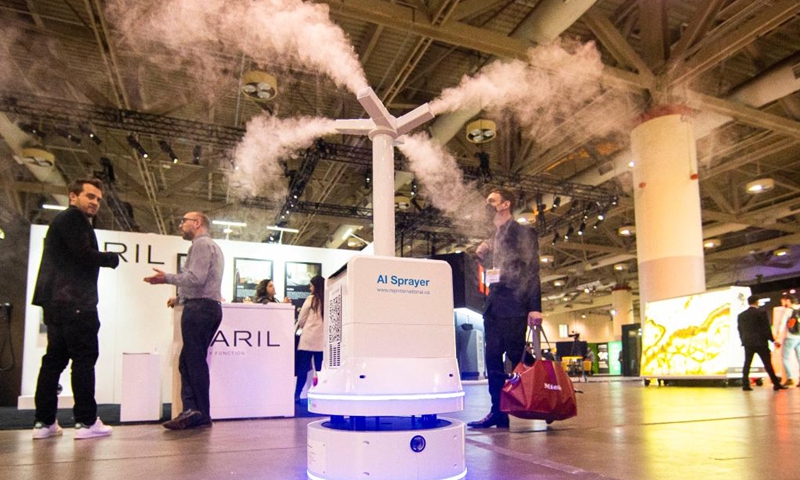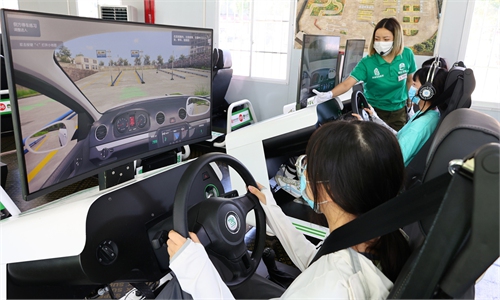
A multi-purpose AI Sprayer is seen at the 2022 Interior Design Show in Toronto, Canada, on April 7, 2022. As Canada's premier showcase of new interior design concepts and products, the annual event is held here from Thursday to Sunday.(Photo: Xinhua)
Artificial intelligence technology has tripled the number of UK stroke patients recovering to a point where they can perform daily activities, according to new research released on Tuesday.
Early stage analysis of over 111,000 suspected stroke patients whose care included use of the technology found it reduced the time between being seen by a doctor and treatment beginning by over 60 minutes, leading to improved results.
The proportion who were able to resume day-to-day activities increased from 16 to 48 percent, the analysis of the Brainomix e-Stroke imaging platform found. The technology, developed by the UK's med-tech solution firm Brainomix, is being used across 11 stroke treatment networks in the UK's state-funded National Health Service (NHS) to diagnose strokes and determine the best treatment. The platform helps doctors in the interpretation of brain scans and allows them to share the images with specialists worldwide who can access them remotely. "AI has the potential to transform our NHS - delivering faster, more accurate diagnoses and making sure patients can get the treatment they need, when they need it," the UK's health secretary Steve Barclay said in a statement.
"Brainomix is an incredible example of how this can be achieved, using the power of AI to shave lifesaving minutes off one of the most time-sensitive diagnoses in medicine." Patient Carol Wilson, a teaching assistant, said the prompt diagnosis and treatment she received as a result of the technology meant she was sitting up and texting her family later the same day.
The grandmother who has since returned to work said she was "back home and able to walk around two days after having a stroke."

